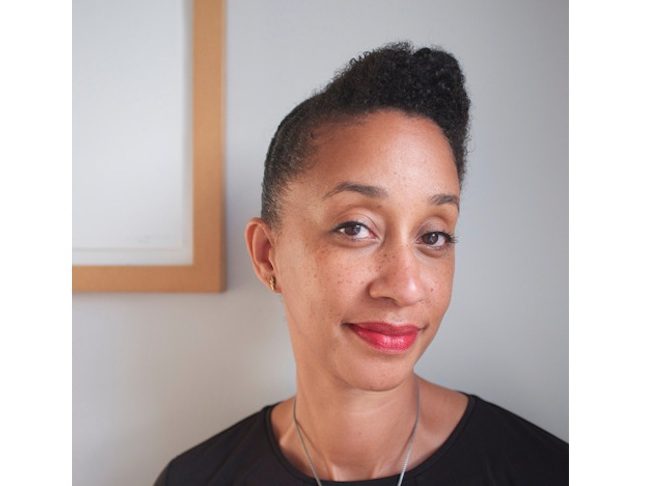Melanie Keen is set to become Director of Iniva, following 5 years at Arts Council England where she has been a Senior Relationship Manager.

Melanie Keen , courtesy of Iniva
Melanie Keen is set to become Director of Iniva, following 5 years at Arts Council England where she has been a Senior Relationship Manager.
She has worked extensively in the visual arts as a freelance curator and consultant, and previously with Iniva both as Project Curator and on a number of its publications, including Recordings: A Select Bibliography of Contemporary African, Afro-Caribbean and Asian British Art. Melanie Keen will join Iniva at a pivotal moment, following the refocusing of the organisation’s mission in relation to the politics of race. Iniva is committed to supporting diverse artists and their practice, creating platforms for debate and encouraging access to and awareness of transnational art practices and histories. As Director Melanie will focus on building Iniva’s partnerships and programme so that the organisation can increase its profile and impact.
Melanie Keen who will start at Iniva in early September, says:
“I am thrilled to be joining Iniva in the midst of a transformation which will see it emerge as an organisation with a revitalised purpose and fresh artistic vision. Building on its previous achievements, Iniva will remain a champion of artists practising at the intersection of identity, politics and representation. Importantly, Iniva will continue to play a critical role in framing the discourse that challenges the notion of difference and diversity from a uniquely British perspective. Having worked as a curator in the formative years of the organisation, my return to Iniva feels like a coming home of sorts and I feel proud and honoured to be invited to lead the organisation, and work with the Iniva team, at this significant point in its history.”
Melanie Keen’s career spans two decades in the visual arts as a curator, consultant and an arts funding manager. She is currently Senior Relationship Manager at Arts Council England working closely with the Director, Visual Arts and as part of the senior management team for London. Her independent curatorial projects focused on collaborative practices and process-based approaches to making work. These projects include A Better Place? with Erika Tan and Melissa Bliss for Bow Festival/Space; and 48 Hours, Tablet Gallery, London including Jacqueline Donachie, Mary Evans, Ella Gibbs, muf, Tomoko Takahashi and Jessica Voorsanger. Other projects include the production of a national education resource, which uses contemporary art and culture to explore the history and legacies of the transatlantic slave trade, for Understanding Slavery, National Maritime Museum, London; Necessary Journeys, an Arts Council England initiative in collaboration with BFI Black World which included artists’ residencies in film archives with Jackie Kay, susan pui san lok and Keith Piper; commissioning a film score by Courtney Pine for film classic Borderline; and an international symposium in collaboration with Tate Modern. She has contributed to a range of publications as a writer and editor. She was Projects Curator at Iniva until 2003; exhibitions and commissions included Simon Tegala’s Anabiosis, Keith Piper’s Relocating the Remains, and Yinka Shonibare’s Diary of a Victorian Dandy. She worked closely with a number of artists on commissions for The Space@Iniva including Farah Bajull, Eduardo Padilha, Janette Parris, Alia Syed and Mayling To. Before joining Iniva in 1997, she co-edited and compiled the publication Recordings: A Select Bibliography of Contemporary African, Afro-Caribbean and Asian British Art published by Iniva and Chelsea College of Art. She completed her MA in Curating Contemporary Art at the Royal College of Art in 1995.
Iniva (Institute of International Visual Arts) is a leading UK contemporary visual arts organisation which creates exhibitions, publications, digital initiatives, education and research projects. Iniva explores the politics of race and global identities through the visual arts. We aim to diversify the mainstream and challenge the status quo by working across media with artists, curators, creative producers, writers and the public.
More Editorial